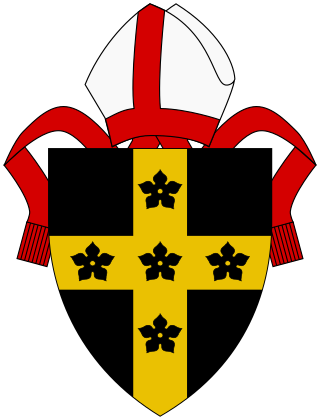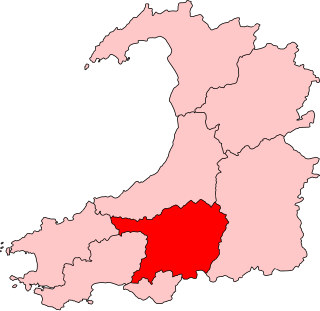- Map of places in Carmarthenshire compiled from this list
- See the list of places in Wales for places in other principal areas.
This is a list of cities, towns and villages in the principal area of Carmarthenshire, Wales.
This is a list of cities, towns and villages in the principal area of Carmarthenshire, Wales.
Aber-arad, Abercrychan, Aber-giar, Abergorlech, Abergwili, Abernant, Alltwalis, Ammanford
Bancffosfelen, Bancycapel, Bancyfelin, Bethlehem, Betws, Blaenycoed (or Blaen-y-coed; partially in Carmarthenshire), Blaenwaun, Brechfa, Bronwydd, Bryn, Brynamman, Burry Port, Bynea
Caeo or Caio, Capel Dewi, Capel Hendre, Capel Iwan, Carmarthen, Carmel, Carway, Castell-y-Garreg, Cefncaeau, Cefneithin, Cenarth, Cilycwm, Cross Hands, Crugybar, Crwbin, Cwmamman, Cwmann, Cwmbach, Cwmduad, Cwmcarnhywel, Cwmfelin Boeth, Cwmffrwd, Cwmgwili, Cwmhiriaeth, Cwmisfael, Cwmmawr, Cwmpengraig, Cynhordy, Cynwyl Elfed, Cynwyl Gaeo
Dafen, Derwydd, Drefach, Dre-fach Felindre, Dryslwyn, Dyffryn Cennen
Felinfoel, Felindre, Felingwm Isaf, Felingwm Uchaf, Ferryside, Ffarmers, Fforest, Five Roads, Foelgastell
Harford, Hendy, Henllan Amgoed, Henllanfallteg, Hiraeth, Horeb
Laugharne, Llanarthney, Llanboidy, Llandawke, Llanddarog, Llanddeusant, Llanddowror, Llandeilo, Llandovery, Llandre, Llandybie, Llandyfaelog, Llandysul, Llanedi (Llanedy), Llanegwad, Llanelli, Llanfair-ar-y-bryn, Llanfallteg, Llanfallteg West, Llanfihangel Aberbythych, Llanfihangel ar Arth, Llanfihangel Rhos-y-Corn, Llanfihangel-uwch-Gwili, Llanfynydd, Llangadog, Llangain, Llangathen, Llangeler, Llangennech, Llanglydwen, Llangunnor, Llangyndeyrn, Llangynin, Llanllawddog, Llanllwch, Llanllwni, Llanmiloe, Llannon, Llanpumsaint, Llansadurnen, Llansadwrn, Llansaint, Llansawel, Llansteffan, Llanwinio, Llanwrda, Llanybri, Llanybydder, Llwynhendy
Maesybont, Manordeilo and Salem, Meidrim, Myddfai, Mynyddcerrig, Mynydd-y-Garreg
Nantgaredig, Nantycaws, Newcastle Emlyn (partially in Carmarthenshire), Newchurch and Merthyr, New Inn
Pantyffynnon, Parc y Rhos, Pemberton, Pembrey and Burry Port Town, Pencader, Pencarreg, Penceilogi, Pendine, Peniel, Penrhiwgoch, Pensarn, Pentrecwrt, Pentregwenlais, Pen-y-graig, Pen-y-groes, Plashett, Pontantwn, Pont-ar-Gothi, Pontarsais, Ponthenri, Pontwelli, Pontyates, Pontyberem, Porthyrhyd, Pumsaint, Pwll, Pwll Trap
Red Roses, Rhandirmwyn, Rhos, Rhosamman, Rhydargaeau, Rhydcymerau,
Talley, Talog, Trap (Trapp), Trelech, Trimsaran, Tumble, Tycroes

Carmarthen East and Dinefwr is a constituency of the House of Commons of the Parliament of the United Kingdom represented since 2010 by Jonathan Edwards of Plaid Cymru. It elects one Member of Parliament (MP) by the first past the post system of election. It was created in 1997, mostly from the former seat of Carmarthen.
The Burry Port and Gwendraeth Valley Railway (BP&GVR) was a mineral railway company that constructed a railway line in Carmarthenshire, Wales, by conversion of a canal, to connect collieries and limestone pits to the sea at Kidwelly. It extended its network to include Burry Port, Trimsaran and a brickworks at Pwll, later extending to Sandy near Llanelli. For a time the company worked the separate Gwendraeth Valleys Railway. The BP&GVR was notable because of the very low height of some overbridges, a legacy of the canal conversion.

The Diocese of St Davids is a diocese of the Church in Wales, a church of the Anglican Communion. The diocese covers the historic extent of Ceredigion, Carmarthenshire and Pembrokeshire, together with a small part of western Glamorgan. The episcopal see is the Cathedral Church of St David in the City of St Davids, Pembrokeshire. The present cathedral, which was begun in 1181, stands on the site of a monastery founded in the 6th century by Saint David.
Llanfihangel-ar-Arth is a village and community in the county of Carmarthenshire, Wales.

Carmarthen East and Dinefwr is a constituency of the Senedd. It elects one Member of the Senedd by the first past the post method of election. Also, however, it is one of eight constituencies in the Mid and West Wales electoral region, which elects four additional members, in addition to eight constituency members, to produce a degree of proportional representation for the region as a whole.

The Kidwelly and Llanelly Canal was a canal and tramroad system in Carmarthenshire, Wales, built to carry anthracite coal to the coast for onward transportation by coastal ships. It began life as Kymer's Canal in 1766, which linked pits at Pwll y Llygod to a dock near Kidwelly. Access to the dock gradually became more difficult as the estuary silted up, and an extension to Llanelli was authorised in 1812. Progress was slow, and the new canal was linked to a harbour at Pembrey built by Thomas Gaunt in the 1820s, until the company's own harbour at Burry Port was completed in 1832. Tramways served a number of collieries to the east of Burry Port.

Llansawel is a village and community in Carmarthenshire, Wales, about ten miles north of Llandeilo. It covers an area of 4,079 hectares (15.75 sq mi). The community is bordered by the communities of: Pencarreg; Cynwyl Gaeo; Talley; Llanfynydd; Llanfihangel Rhos-y-Corn; and Llanybydder, all being in Carmarthenshire.

Cynwyl Elfed is a village and community in the county of Carmarthenshire, Wales. The community includes the villages of Cynwyl Elfed, Blaenycoed and Cwmduad. It is situated about 5 miles (8.0 km) north of Carmarthen and had a population of 953 in 2001, increasing to 1,044 at the 2011 Census.

Llangeler is a hamlet and community located in north Carmarthenshire, Wales. The name is believed to refer to St. Gelert. Llangeler parish covers a wide area including to the west, the textile village of Drefach Felindre, Waungilwen, Cwmpengraig and to the east, Pont Tyweli which adjoins Llandysul on the Carmarthenshire side of the River Teifi. The population of the parish was 3,222 at the Census of 2001, increasing to 3,427 at the 2011 census.
The bedrock geology of Carmarthenshire in west Wales consists largely of Palaeozoic age sedimentary rocks. Unconsolidated deposits of Quaternary age in Carmarthenshire include a dissected cover of glacial till, valley floor alluvium and some scattered peat deposits in both upland and lowland settings. There are extensive beach and tidal flat deposits along the Carmarthenshire coast. The exploitation of the county's mineral riches, particularly coal and limestone, was a key part of the local economy through much of the nineteenth and twentieth centuries.